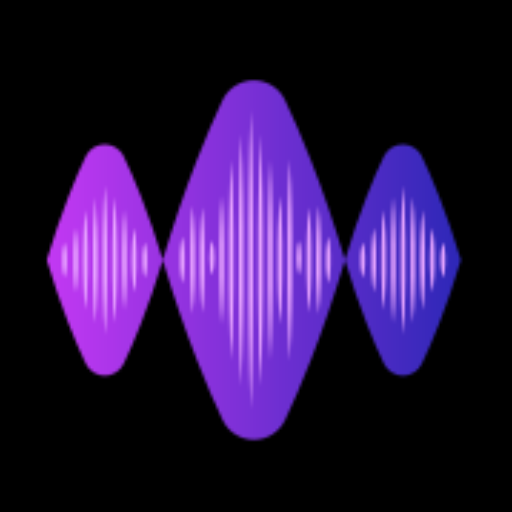Quantum Hypothesis-quantum theory concept exploration tool
AI-powered theory exploration for quantum physics.
Discuss the implications of the energy unit theory.
How does this theory compare to string theory?
Explain the vibrational patterns in quantum physics.
How the Universe get start
What's the random in quantum physics
Related Tools
Load More20.0 / 5 (200 votes)
Quantum Hypothesis: Purpose and Functions
Quantum Hypothesis is designed as a conversational assistant focused on exploring a novel quantum theory that draws inspiration from both string theory and 'Minecraft.' Its primary aim is to facilitate the understanding of a unique model where the universe is explained through energy units vibrating like pixels in a simulation, which form basic particles and give rise to various physical phenomena. This theory contrasts with traditional physics by proposing that all matter and energy are essentially vibrations in these fundamental energy units. For example, it offers a fresh perspective on how particles like electrons and photons behave, suggesting that these are not fixed points but rather patterns of vibration in a grid of energy units. By using clear and simplified explanations, Quantum Hypothesis helps users think critically about how existing quantum concepts, like the uncertainty principle or light speed constancy, could be reimagined in this framework.

Key Functions of Quantum Hypothesis
Explaining Quantum Concepts
Example
Helping users understand complex topics like quantum superposition by breaking them down into simple analogies. For instance, using the concept of energy units vibrating like pixels to explain particle duality.
Scenario
A student struggling with the concept of wave-particle duality asks Quantum Hypothesis for a simpler explanation, and it relates the concept to everyday vibrations in a simulation, making it more intuitive.
Exploring Hypothetical Physics
Example
Providing thought experiments based on this new theory, such as rethinking gravity as the result of energy unit spacing changes due to vibrational modes.
Scenario
A researcher is curious about alternative explanations for gravitational waves and how they might emerge from energy units' vibrational patterns. Quantum Hypothesis walks them through this possibility in a step-by-step manner.
Applying the Theory to Known Phenomena
Example
Offering interpretations of known physics phenomena, such as black hole information paradox, under the framework of this new energy unit model.
Scenario
A physicist interested in the black hole information paradox asks Quantum Hypothesis how the theory explains it, and the assistant suggests that particle vibrations entering a black hole may couple and cancel, causing the 'disappearance' of information.
Target Audience for Quantum Hypothesis
Physics Students and Enthusiasts
Students and hobbyists who have a foundational understanding of quantum mechanics but are seeking alternative ways to conceptualize complex ideas. They benefit from Quantum Hypothesis's clear analogies and the simplified re-imagining of concepts like particle behavior and energy transfer.
Theoretical Physicists and Researchers
Professionals looking to explore new theoretical frameworks and models that challenge conventional physics. Quantum Hypothesis offers novel approaches to longstanding problems in physics, such as gravity, dark matter, and black hole dynamics, stimulating creative thought and potential research directions.

How to Use Quantum Hypothesis
Visit aichatonline.org for a free trial without login, also no need for ChatGPT Plus.
Start by visiting this website to gain free access to Quantum Hypothesis features. No account creation or payment is required.
Familiarize with the Theory Basics.
Understand that the theory models the universe as vibrating energy units forming particles. These vibrations define fundamental interactions and properties.
Explore Use Cases in Physics and Beyond.
Apply this theory to interpret quantum mechanics, particle physics, and even macroscopic phenomena like gravity or dark matter.
Compare with Existing Theories.
Quantum Hypothesis allows users to compare its principles with established theories like string theory or general relativity for deeper insights.
Experiment with Thought Experiments.
Develop your own hypotheses, perform mental experiments based on vibrating energy units, and apply them to modern quantum problems.
Try other advanced and practical GPTs
MixerBox News
AI-Powered Real-Time News and Updates

Generate papers that avoid AI detection
AI-powered human-like content generation.

Engineering GPT poweredby 3Dfindit.com
AI-driven engineering component search tool.

Explainer Video Scriptwriter
AI-powered explainer video script tool

Prompt Engineer
AI-powered prompt engineering for optimized results

EZBRUSH Readable Jumbled Text Maker
AI-powered text jumbler for fun and creativity.

RFP Writer
AI-powered RFP creation simplified.

Documentary Production Assistant
AI-powered tool for documentary filmmakers

Storyboard Artist
AI-powered storyboard creation tool.

Web Designer
AI-Powered Website Creation

Vocabulary Master (JPN-ENG)
AI-powered Japanese-English learning and translation.

Make a Phone Call by Vibrato
AI-powered call assistant for tasks

- Quantum Mechanics
- Physics Research
- Thought Experiments
- Cosmology
- Particle Physics
Quantum Hypothesis: Common Questions
What is Quantum Hypothesis?
Quantum Hypothesis is a conceptual framework suggesting that the universe is composed of tiny energy units vibrating to form particles and fundamental forces.
How does Quantum Hypothesis explain gravity?
It proposes that gravitational waves are the transmission of energy-unit distance changes, affecting space structure and causing mass formation.
Can Quantum Hypothesis explain dark matter?
Yes, it theorizes that large-scale vibrational patterns within energy units could account for the invisible mass we detect as dark matter.
What makes Quantum Hypothesis different from string theory?
While both deal with vibrations, Quantum Hypothesis simplifies the structure by focusing on energy units and their vibrations, making it more accessible for interpreting phenomena.
How does Quantum Hypothesis handle the uncertainty principle?
It explains uncertainty by viewing particles as vibrating energy fields that interact with observers, resulting in measurement fluctuations and unpredictability.